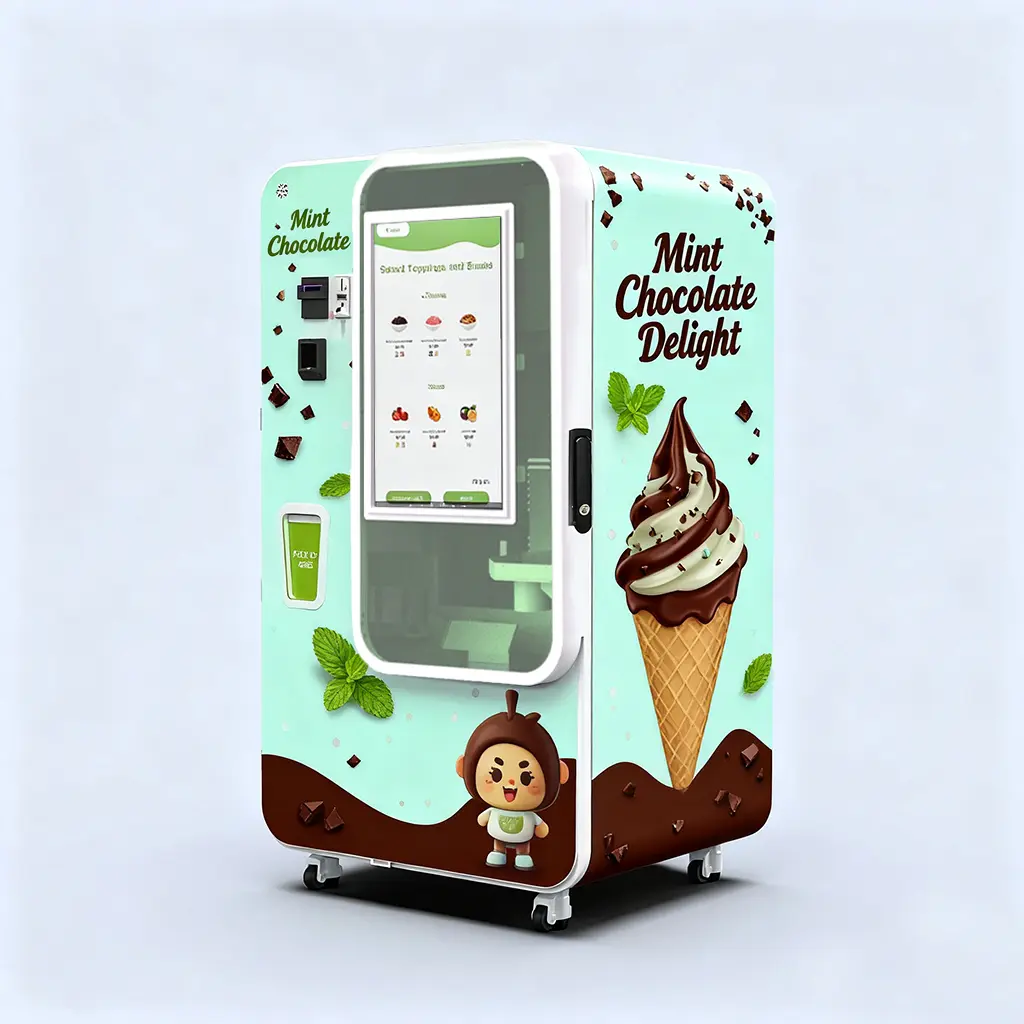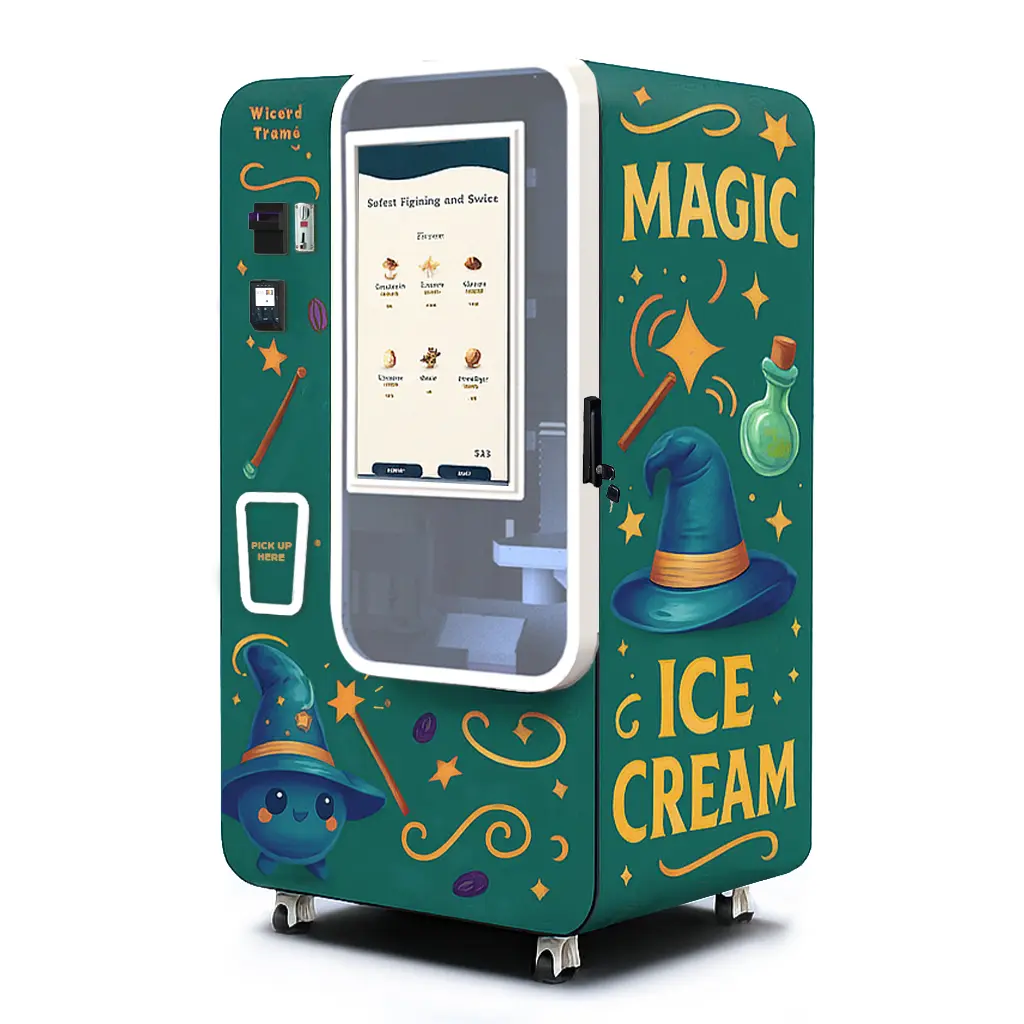How Do Ice Cream Vending Machines Cope with High-Temperature Environments
Summer heat causes frequent failures in ordinary ice cream vending machines. Huaxin's equipment, with variable frequency motor and pre-cooling compensation, achieves Grade A stability in extreme temperatures, zero field failures, intelligent early warning, 30% higher efficiency, suitable for high-temperature scenarios.
In the high-temperature environment of summer, the operational stability of ice cream vending machines often becomes the key to merchants' profitability. Many operators have encountered issues such as refrigeration failures and abnormal raw material solidification caused by excessive temperatures. However, the ice cream vending machines under Huaxin Technology have demonstrated unique technical advantages in this field.
Major Dilemmas Faced by Ice Cream Machines
When the outdoor temperature exceeds 35°C, ice cream vending machines face three major challenges: first, the continuous high-load operation of the refrigeration system may trigger compressor overheating protection; second, temperature fluctuations in the raw material storage compartment may cause the ice cream to harden or melt; third, the electronic control system is prone to sensor malfunctions in high-temperature environments. Data from a chain convenience store shows that the average daily failure rate of ordinary equipment increases by 40% in environments above 38°C, directly affecting sales efficiency.
The raw material stirring device of Huaxin's equipment adopts variable frequency motor technology, which can automatically adjust the rotation speed according to the viscosity of the raw materials. When the ambient temperature rises sharply, the system will activate a pre-cooling compensation program to lower the temperature of the raw material compartment in advance, avoiding temperature fluctuations caused by frequent door openings and closings. This technology has been certified by the National Quality Supervision and Inspection Center for Refrigeration Equipment, achieving Grade A in stability indicators under extreme temperatures.
Advantages in Field Operations
Feedback from an operator at a scenic spot in Guangzhou shows that during the continuous high temperatures of the 2024 summer, 10 deployed Huaxin machines operated with zero failures, while other brands' equipment used in the same period averaged 2.3 refrigeration failures per unit. "Tourists care most about the taste of ice cream. The products from Huaxin machines always maintain a smooth texture, leading to significantly more repeat customers," commented the operator's person in charge.
In addition, the equipment's intelligent diagnostic system can monitor the status of core components in real-time and push early warning information to managers via a cloud platform. A case at a shopping mall in Shanghai showed that this system helped the maintenance team identify 3 potential circuit overheating hazards in advance, avoiding losses caused by equipment shutdowns.
Long-Term Advantages of Soft Ice Cream Machines
For operators in high-temperature regions, choosing equipment with high-temperature stability not only reduces maintenance costs but also ensures consistency in user experience. These advantages are not a simple accumulation of parameters but the result of continuous optimization based on market feedback. In practical applications, the comprehensive operational efficiency of Huaxin's equipment in high-temperature environments is 30% higher than that of ordinary equipment, making it particularly suitable for scenarios such as scenic spots, outdoor plazas, and gas stations.
In the ice cream vending machine industry, stability often creates more practical value than flashy features. Industry data confirms this: a third-party survey shows that 67% of user complaints about ice cream vending machines are related to "inability to purchase or receiving melted products due to machine failures," far higher than complaints about "lack of features" (only 12%). This means stability directly determines users' repurchase intention and brand trust. Rather than attracting temporary attention with flashy features, it is better to gain recognition through consistent and reliable performance—easing operators' worries and reassuring consumers. After all, in commercial scenarios, "always functional" is always more convincing than "occasionally functional."




